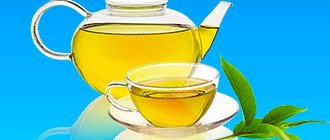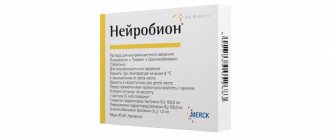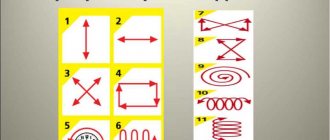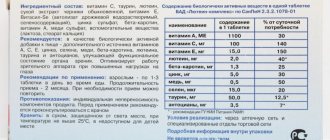Ginseng (“Root of Life”) is a medicinal plant of the Araliaceae family. Used as a general tonic. Ginseng grows in North America and Asia (Korea, Japan, China, Russia, Vietnam). It is believed that drugs based on it prolong the life and youth of the body. They eliminate symptoms of physical and mental fatigue, increase performance, stimulate sexual function, improve appetite, regulate blood pressure, and have a stabilizing effect on the central nervous system.
Description of the plant
The root is usually divided into two main parts: the root itself and the “neck”. The latter is a rhizome on which the annual rings are clearly visible (picture below). By the number of tubercles on the rhizome, you can easily calculate the age of the root.
The stem is herbaceous, about 40-50 cm in height, the leaves are palmately divided. It blooms in June, white and pink umbrellas are clearly visible in the grass. Bright red berries with two white seeds are produced in July-August. The pulp of the berries is poisonous; the seeds are sometimes used for treatment.
In the wild, ginseng is found less and less often. It grows for a long time, there are specimens 80-100 years old, only the root of at least six years is considered the most suitable and the older it is, the more valuable . Habitat: dense shady virgin forests of coniferous and mixed species, the foothills of the Sikhote-Alin in the Primorsky Territory. In China and Korea, wild ginseng can no longer be found; it has been cultivated for a long time. In America, there is another species, five-leaf ginseng (Panax quinquefolium), which only partially replaces the real one; it is valued much lower.
You cannot write about the root of life in the dry language of botany. There are too many legends, beliefs, and songs associated with it. He could make the seekers rich, or he could bury them forever in the wilds of the taiga. The Chinese name translates to "root man". The old ginseng root really resembles a person with arms and legs, and the more obvious this resemblance is, the more expensive the root is.
Buy ginseng tincture for 890₽
Ginseng seekers (root growers) in the Far East, both ours and the Chinese, consider it a living forest spirit; according to legend, the root is guarded by tigers. When a root grower finds a plant, he asks for permission to dig it out of the ground or goes to bed and he must dream about which root can be taken and which one can be left without being damaged; if you break the tradition, the taiga will not let go and the seeker will disappear forever. Ginseng is harvested either in the spring, when it has sprouted and is clearly visible, when it blooms, or when red fruits appear and are clearly visible. In other periods, it simply cannot be found in the remote taiga. They dig very carefully and respectfully.
Ginseng root
Chemical composition of ginseng
Chemical studies have discovered in ginseng many biologically active beneficial substances, organic and inorganic compounds, complex and simple, vitamins, all of which have a healing effect on the human body.
- Glycosides;
- saponins;
- alkaloids;
- Sahara;
- essential oils;
- pectin;
- vitamins: groups B and C;
- folic;
- nicotinic acid;
- resin;
- amino acids;
- macro and microelements (iron, copper, titanium, chromium, cobalt, etc.).
Types of ginseng
There are 15 types of ginseng, they grow in the Far East, Asia, North America; 3 types are mainly used in medicine:
- Common ginseng (ginseng);
- quinquefolium ginseng;
- Siberian ginseng (eleuthero).
Cinquefoil grows in North America and has a slightly different chemical composition and a weaker effect.
Let's look at ordinary ginseng, the main difference is whether it is a wild plant or grown on plantations in Korea, China, Australia, and the Far East. Wild ginseng is more valuable; the root takes any substances and elements from the soil and grows for decades. The cultivated root consumes for growth only what is given to it by humans in the form of fertilizers and growth stimulants; it is dug up for sale in the 6th year; it is smoother and more even than its wild counterpart.
Red Korean or Chinese ginseng is not a type, but a method of processing for storage and use. The washed roots are steamed and dried, they become brown in color and are called red ginseng.
The root is also divided according to quality into four types: heavenly (the best, at least 68g, similar to a person, without cuts or holes), earthly, good, cut.
Siberian ginseng - Eleutherococcus grows in Siberia and Altai under harsh conditions and differs in chemical composition and appearance. Its properties are less pronounced and have a cumulative nature. It can be used even by children to strengthen the immune system.
Ginseng stem
What kind of plant is ginseng?
This long-lived plant is classified as a relict plant. There are 11 species found in nature (five-leaved, spotted, etc.), the main habitat of which is East Asia. One of the varieties of grass lives in Vietnam and, accordingly, is called Vietnamese.
Currently, it is quite difficult to find a wild plant. It is listed in the Red Book and is protected by law from destruction. For medical purposes, raw materials cultivated on plantations are used. Ginseng is susceptible to garden diseases and therefore requires strict adherence to growing conditions and careful care. Only after 6-7 years the root from the garden is ready for use.
Useful properties of ginseng
Ginseng root and, in rare cases, seeds are used for medicinal purposes. Since ancient times, Chinese healers believe that ginseng promotes reproductive function and is a stimulant for the functioning of the entire body ; it increases the amount of vital energy. Modern scientists say that ginseng is an adaptogen, a medicinal plant that contains substances that increase a person’s adaptive potential, i.e. a person's ability to adapt to changing environmental conditions.
It's hot outside, our blood vessels dilate, we sweat; when it gets cold, the reverse process starts; there is a threat of foreign viruses or microbes, defense cells turn on. The body is constantly adapting to changes in the external environment. You will say that immunity is responsible for this and you will be right, our immunity depends on how quickly and efficiently this response occurs.
Ginseng root increases the body's ability to adapt to adverse environmental conditions.
Let's list the main beneficial properties of ginseng:
- activate the activity of the adrenal glands, it is the adrenal glands that are responsible for adaptive reactions;
- increases mental and physical performance. Experience showed that mice under the influence of ginseng exited the maze faster, were more active and learned new tricks;
- improves cerebral circulation, strengthens memory;
- promotes conception;
- reduces blood glucose levels;
- regulates metabolism;
- reduces weakness and drowsiness;
- reduces cholesterol levels;
- has a positive effect on hematopoiesis and the functioning of the cardiovascular system;
- increases blood pressure for hypotensive patients;
- reduces fatigue.
Let's take a closer look at how ginseng can be useful.
For men
Even if you do not experience problems in the genitourinary area, you should drink tincture or capsules with ginseng extract for prevention and to prolong men's health. It functions as a natural stimulant, acts gently, increases blood flow to organs and the sensitivity of nerve endings.
For women
Taking ginseng improves general condition and improves tone. It is important for a woman to feel young, energetic and full of strength. Taking the root increases the production of the hormone of joy and sex hormones. Increased blood flow to the pelvic organs promotes readiness for conception and childbearing. If pregnancy occurs, you should stop taking ginseng.
For children
As you already understand, ginseng affects sex hormones. Therefore, it is not recommended for children until puberty. Only as prescribed by a doctor, in an individual dosage, an infusion of the root is used in joint therapy with ginkgo biloba for children with ADHD syndrome. As well as for children for recovery after serious illnesses, chemotherapy, radiation therapy, but strictly individually and under the supervision of medical workers.
Indications for use
It is recommended to use ginseng root for such diagnoses as:
- diabetes;
- nervous exhaustion, overwork, chronic fatigue;
- memory disorders;
- erectile dysfunction, inflammation of the prostate in men;
- gynecological pathologies in women;
- disorders of the cardiovascular system;
- elevated cholesterol levels;
- colds;
- rheumatism;
- atherosclerosis;
- liver damage;
- obesity, overweight.
What diseases does ginseng root treat?
Ginseng root is credited with all-healing value and is used for long-term and debilitating illnesses accompanied by loss of strength and exhaustion. As a universal healing agent, ginseng is added in one dose or another in the treatment of many diseases (tuberculosis, rheumatism, allergies, nervous exhaustion, etc.), for recovery after oncology, surgery.
But it is mainly used to prolong human life, restore strength, freshness and youth, not only by sick people, but also by healthy adults.
Ginseng against atherosclerosis
Atherosclerosis is a disease of the large blood vessels of the arteries. The inner lining of the arteries becomes covered with fatty deposits (cholesterol plaques), the artery becomes narrower and blood flow to the organ decreases. This is the main cause of cardiovascular diseases.
Ginseng lowers cholesterol and improves blood circulation.
Ginseng root for neurasthenia
Irritability, a state of constant tiredness and fatigue. The neurasthenic loses the ability for prolonged mental and physical stress and breaks down into a hysterical state. Increasing stress resistance, physical endurance and general body tone when taking ginseng has a beneficial effect on such people.
Stabilizes the nervous system.
Ginseng will help keep you alert
Improving the supply of blood and oxygen to brain cells restores neural connections, the person is alert and able to think soberly and work productively. Eating the root can invigorate you if you have heavy workloads and do not have proper rest.
Toning effect.
Ginseng for diabetes
Diabetes mellitus is an endocrine disease, high blood sugar levels, disruption of the pancreas and insulin production. How can ginseng tincture affect this disease, where does glucose go from our blood?
Most of it goes into glycogen (a substance that is stored in the liver, our reserve supply of glucose). Under the influence of ginseng, the liver’s ability to produce glycogen and take glucose from the blood increases. It is for this reason that most teas for lowering sugar include the root of this plant. In addition, ginseng increases cell sensitivity to insulin and restores metabolism.
Produces glycogen and lowers blood sugar.
Ginseng root for colds
Ginseng improves immunity; it contains immunoglobulin protein, zinc, vitamin C and B vitamins, which prevent the spread of infection.
Zinc is an antioxidant, it reduces the risk of acute respiratory infections and reduces the duration of illness along with other vitamins.
Increases immunity, prevents the spread of infection.
Ginseng and gynecological diseases
Affects reproductive function in women at the hormonal level. When taking ginseng, the immune system itself copes with various inflammatory diseases and suppresses the activity of pathogenic microorganisms.
Improves the quality of hormonal levels.
Ginseng against prostatitis and impotence
After 40 years, the production of sex hormones in a man’s body decreases, erections become worse, desire is less frequent. In addition, a sedentary lifestyle leads to stagnation of blood in the pelvis and leads to inflammation of the prostate gland, which further aggravates problems with potency.
Ginseng is a libido stimulant. It can be taken once, before sexual intercourse, or it can be taken as a preventive measure once a year.
Blood flow to the genitals, anti-inflammatory and antimicrobial properties of ginseng root will help cope with prostatitis. Saponins in the root increase sperm motility. By taking ginseng tincture for two weeks, 28 drops before breakfast, you will feel a surge of strength and an increase in libido.
Increases libido and enhances potency.
For weight loss
Excess weight depends on the metabolic rate; if it decreases, then the calories eaten go not into energy, but into fat deposits. Ginseng tincture helps normalize metabolism, start metabolism, increases body tone and the desire to move and act.
Appetite decreases, and the amount of energy increases due to fat accumulation. Fats oxidize faster, glucose and cholesterol in the blood decrease.
Oncology
If you take ginseng to prevent cancer, the risk of disease is significantly reduced. The main area of treatment for cancer is the recovery period after surgery, after chemotherapy and radiation therapy. Numerous studies have proven that when taking ginseng, cancer patients reduce the pain index of cancer symptoms, as well as the side effects of chemotherapy in the form of fatigue and apathy. Appetite and tone increase, the number of leukocytes increases.
A group of scientists at the Korean Medical Center experimentally proved that long-term use of ginseng root significantly shortened the recovery period in patients undergoing chemotherapy after surgery for rectal cancer.
For high cholesterol
The effect is similar to that of lowering glucose levels. Ginseng acts on liver cells, causing them to quickly utilize cholesterol and its level in the blood decreases, and this prevents atherosclerosis and cardiovascular diseases.
Reduces blood cholesterol levels.
At low pressure
In case of hypotension, ginseng causes all body functions to become more active and work faster. Due to improved blood flow, the pressure rises slightly, then it returns to normal.
Dissolving cholesterol blocks
Ginseng is actively used in the prevention of strokes and heart attacks, and in the complex treatment of atherosclerosis. Doctors recommend taking medications based on it to patients diagnosed with cardiovascular diseases. As bioactive substances accumulate in the body, the level of harmful cholesterol in the blood decreases, while the concentration of beneficial lipids increases. The process of cleansing small and large blood vessels from cholesterol plaques begins. They gradually dissolve and are eliminated from the body.
Areas of application of ginseng
Ginseng has been known for a very long time in the countries of Southeast Asia. Gift of the gods, root of life, root of divine fire. There is a legend that when lightning strikes the ground, the divine source is cut off, and in this place a root of life full of divine fire is formed. This root is ginseng. Among the peoples of Asia, the root has found use not only as a medicine; it is eaten, sprayed on tea leaves, candied, added to soups or in water for washing.
Application in medicine
Still, the main area of application is medicine. Restorative therapy after oncology treatment, normalization of genital function in men and women, increased immunity, joint therapy in the treatment of chronic diseases. It is difficult to list all the uses of ginseng root in medicine. Doctors of all specializations recognize it as a general strengthening and adaptogenic remedy of the first magnitude.
Use in cooking
Ginseng root extract is added to honey, sweets, lemonade, and root powder is added to baked goods. Small pieces of ginseng are candied and dissolved like candy, 1-2 pieces per day. As an aphrodisiac, it is added to grape juice or wine.
Body stimulant
Ginseng is a natural stimulant of the body, its effect is stronger than that of caffeine . It, unlike synthetic stimulants, is harmless and does not deplete the body after repeated use. It increases performance and endurance.
Use in sports
The main function of taking ginseng is to increase immunity, then elasticity of blood vessels, digestion, respiration and nutrition of cells, restoration of muscle tissue occurs faster. The athlete recovers faster and adapts to heavy loads faster.
Ginseng is not a doping drug, but it enhances performance during training and competitions.
Best adaptogen
Ginseng increases the body's ability to adapt to external changes, adapt to heat, cold, and resist viruses and microbes. Gives strength after long flights and sleepless nights.
The properties of ginseng as the best adaptogen are recognized throughout the world.
Extension of youth
Ginseng slows down the formation of free radicals and oxidative processes, and promotes tissue restoration at the cellular level. Cells are rejuvenated, and since oxidative processes are slowed down, tissues and organs remain young and healthy longer. This does not guarantee eternal life, but old age will come more slowly.
The Chinese say that anyone who chews a piece of ginseng every day will live up to 100 years.
Cosmetology
Chinese beauties from imperial houses added an infusion of ginseng root to their washing water. Korean young ladies in the morning wiped their faces with cold water with an infusion of this magical potion. Let's not deny that the skin of both of them is like delicate porcelain. What prevents us from taking advantage of useful experiences? Nowadays, many cosmetic companies add ginseng root extract to skin care products.
You can make your own tonic: add a spoonful of ginseng infusion to clean water when washing your face or to a spray bottle to freshen your face. If you are approaching Balzac's age, it will not hurt to take a spoonful of infusion before breakfast for 3 cold months with breaks of 10 days after each month of intake.
An extract or infusion of the root is added to hair masks and shampoos. It stimulates the growth of dormant hair follicles, making hair thick and shiny.
Improved mental performance
Ginseng has a beneficial effect on the functioning of the central nervous system, coping with brain disorders, neuroses, depressive states, and reducing psycho-emotional stress. It is often included in treatment regimens for patients with pathologies of neurogenic origin. Such a wide range of uses of the plant is due to its numerous therapeutic properties:
- increased mental activity and performance;
- reduction of increased anxiety;
- eliminating nervous excitability;
- elimination of sleep disorders;
- reducing elevated levels of aggression.
Recently, ginseng has been increasingly used to treat vegetative-vascular dystonia, a complex of functional disorders with impaired regulation of vascular tone. After a course of taking it, the severity of paroxysmal or constant heartbeats, sweating, headaches, and tingling in the heart area decreases.
How to use ginseng?
Ginseng in any form for prevention or treatment is best used in cold seasons; in summer it is less effective. In home preparation, they use alcohol tinctures, water decoctions, ginseng tea, honey jelly, ointment, and paste. All dosages and courses of administration are given for preventive purposes. For treatment, the course and dose are selected by the doctor.
Ginseng in tincture, capsules and dry
Tincture
The tincture is made with 40-proof vodka from fresh or dry root. I offer several recipes from Chinese and Russian traditional medicine.
You can drink any tincture for no more than three months a year with breaks of 10-15 days after a month of use. It is better to use 15-20 drops 1-2 times a day in the first half of the day before meals. You should start with small doses.
- Fresh whole root (about 50g) is first soaked for 2 hours in sweet water, then poured with 0.5 liters of vodka. The next day, the composition is heated to 50 degrees and left for another month in a dark place. After a month, filter and pour vodka over the same root again. The process is repeated;
- Grind the fresh root into porridge and add vodka in a ratio of 50g to 500ml. leave for a month in a dark place at room temperature, stirring. When pouring the finished tincture for consumption, you can add vodka to the remaining mixture;
- the dry root is prepared in the same way. Only the proportions are different: for half a liter of vodka, take 20g of dry root, you need to cut it or grind it into powder.
There is an old Chinese recipe for using ginseng tincture. Take a spoonful of sugar, drop a drop of tincture into it and keep it in your mouth until the sugar is completely dissolved. This way, ginseng is immediately absorbed into the blood without entering the stomach. Every day you add one drop, bring it up to the number of your age and move towards decreasing the drops. Such prevention can be carried out once a year. The recipe is called “Chinese recipe”.
Ointment
For external use, an ointment is made based on beeswax, propolis and ginseng root powder. 15g of root powder (or a spoonful of extract), 100g of wax and 15g of propolis (you can take a teaspoon of propolis tincture), melt everything in a water bath and warm it up, stirring thoroughly for 5-10 minutes. This ointment helps with wounds, boils, acne, erosion, as well as dry skin and cracks. It should be stored in the refrigerator. Can be used for cosmetic purposes.
Sometimes a paste of powdered root is used to treat skin rashes.
Pour a spoonful of powder into two spoons of hot water, grind and leave for 60 minutes. Then the paste is applied to problem areas.
Decoction
The water decoction is made fresh every day and is not stored. Pour 2 teaspoons of crushed roots into a glass of boiling water, cook for 5 minutes and slowly cool to 40 degrees.
Take 1 tablespoon 2-3 times a day 20 minutes before meals.
Tea
Add 1 tsp to 50g tea leaves. spoon of ginseng powder, mix thoroughly and use as regular tea leaves. You should drink this tea in the first half of the day.
Honey cream jelly
Mix 50g ginseng root powder with 700g honey, heat to 40 degrees in a water bath and stir, beating like foam. Take 1 tablespoon with tea or water 2-3 times a day for a month, then a break of 10 days.
Possible contraindications and side effects
Even such a wonderful plant as ginseng has contraindications and side effects.
Contraindications:
- Pregnancy . Increases the tone of the uterus at all stages, which can lead to premature termination of pregnancy;
- Breastfeeding . The child will be restless;
- Age limit until full puberty. Ginseng root affects the hormonal system, and in adolescents, during puberty, it is already unstable (there are storms and recessions), it is better not to touch the hormones until they calm down on their own;
- Epilepsy;
- High blood pressure , hypertensive crisis. By making all body systems work faster, ginseng root can help increase blood pressure;
- Do not exceed the dosage or combine it with alcohol . The alcoholic infusion of the root is consumed in drops, not in glasses;
Side effects:
- When taken in the afternoon, it may cause insomnia;
- It is not recommended to take if you have an overactive thyroid gland;
- A blood thinning effect has been noticed; people with poor coagulability should take it with caution (so as not to increase bleeding);
- It is not recommended to take it with other tonic stimulants; it can cause overexcitation (do not add it to coffee, for example).
Possible side effects
During treatment and prevention with ginseng, side effects are observed quite rarely, and their occurrence is usually associated with non-compliance with the dosage regimen or too long use. They appear as follows:
- pain in the heart;
- tachycardia;
- sleep disorders, problems falling asleep;
- headache;
- increased nervous excitability.
The leading signs of local adverse reactions include irritation, dry skin, burning sensation, itching. It is necessary to stop treatment and consult a doctor.
Opinions of doctors and patients
Ginseng is a plant, but also a medicine that has proven effects on the human body. And before taking it, you need to consult with your doctor, study its effect and select the necessary dosage. The opinion of scientists and doctors practically coincides with the opinion of traditional healers, which is very rare. But in the case of the miracle root, the stimulating, adaptogenic, rejuvenating effect of the body is not in doubt.
Negative reviews of the use of ginseng occur only when the dosage or rules of administration are violated. Study the properties of the plant, think about whether it is right for you, and consult with a herbal therapist. Each person is individual and has his own opinion, based on your own experience. Ginseng helps everyone, but especially those who believe in its power.
Ginseng tincture and our blood pressure
People with hypotension experience general lethargy, apathy, loss of strength, and slow reactions and perceptions. Ginseng tincture helps regulate blood pressure to normal. For patients suffering from hypertension, ginseng is contraindicated.
This will only increase the negative manifestations of high blood pressure. There are still exceptions to this strict rule. Only a doctor can decide whether or not to take the tincture. In very rare cases, on the recommendation of a doctor, taking the plant with honey or ginseng tea is justified.
What to look for before buying and where to buy?
Preparations with ginseng root can be bought at a pharmacy, online from individual sellers or in online stores. If you have not encountered ginseng root before, it is better not to risk your health by buying it secondhand. Pharmacies and online stores have permission and certificates for their products.
When buying capsules, granules, tinctures, look at the expiration date and composition. Pharmaceutical preparations are often replete with additional chemical elements. Our company Jet-life provides a quality guarantee, has all certificates, delivery to any corner of Russia.






